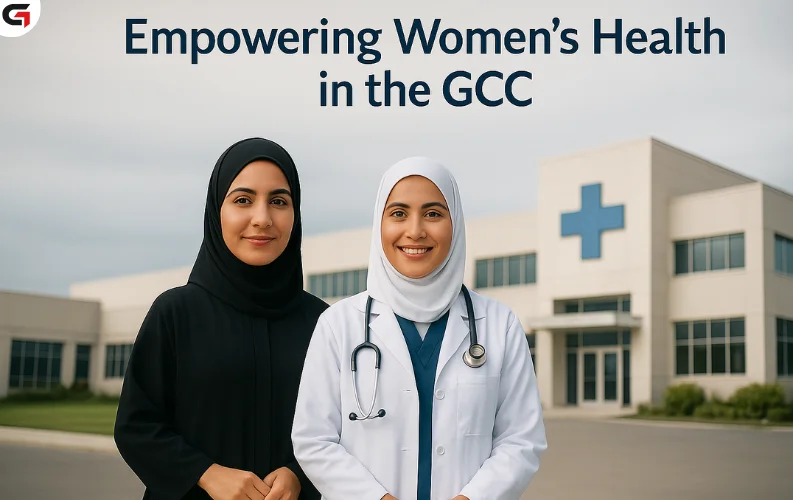The Gulf Cooperation Council (GCC) region, comprising Bahrain, Kuwait, Oman, Qatar, Saudi Arabia, and the United Arab Emirates, has long balanced the weight of tradition with the call for modern progress. Nowhere is this tension more evident, and more transformational, than in the field of women’s health.
Historically shaped by cultural norms, social expectations, and limited access to information, the conversation around women’s health in the Gulf is now shifting in real time. What was once considered taboo or private is emerging into public discourse, driven by policy reforms, education, digital platforms, and the rise of women in medicine and advocacy.
This article explores how the GCC is witnessing a health transformation among women, not only in medical advancements, but in awareness, autonomy, and access to care.
Also Read:- The Ultimate Guide to Keto: Benefits, Challenges, and Everyday Recipes
A Cultural Backdrop: Understanding the Starting Point
Women’s health in the Gulf has traditionally been viewed through a cultural and familial lens. Conversations about menstruation, reproductive health, or mental well-being were often kept behind closed doors. Older generations, while rooted in family care traditions, often lacked formal healthcare access or open dialogue about health challenges.
Key historical limitations included:
-
Social stigma around discussing gynecological health or mental wellness
-
Reliance on home remedies or family-based knowledge in place of clinical intervention
-
Limited female representation in medical professions until recent decades
-
Cultural modesty that discouraged regular screenings or check-ups
Yet despite these cultural constraints, women’s role as family health caretakers has always been strong, positioning them uniquely to lead change when systems began to open up.
Modern Shifts: What’s Changing Across the GCC
In the last 10–15 years, the GCC countries have implemented a range of strategic health and social reforms aimed at empowering women, not just in society, but in their own bodies and choices.
Notable Shifts Include:
-
Government-Led Health Campaigns
Ministries of Health in Saudi Arabia, UAE, Qatar, and Bahrain have launched initiatives around:-
Breast cancer awareness and free screenings
-
Pre-marital and genetic counseling
-
Fertility health and maternal care
-
HPV vaccination and cervical cancer education
-
-
Rise of Female Healthcare Providers
More women are entering medical school, specializing in gynecology, pediatrics, psychiatry, and public health. This has improved comfort and trust among female patients. -
Increased Access to Gynecological and Reproductive Services
Urban hospitals and private clinics now offer modern, confidential, and comprehensive care for reproductive health, especially in UAE, Qatar, and KSA. -
Legal and Social Support for Women’s Autonomy
In countries like Saudi Arabia and the UAE, reforms have expanded women’s rights to make medical decisions independently, boosting healthcare participation.
Also Like This:- Top 10 Practical Tips for Maintaining a Healthy and Balanced Lifestyle
Women’s Health Milestones Across the Region
To better understand the progress, here’s a closer look at country-specific advancements:
United Arab Emirates
-
Home to some of the most advanced maternity hospitals in the region (e.g., Danat Al Emarat, Latifa Hospital)
-
Active campaigns for breast cancer screenings and HPV vaccination
-
Access to women-specific wellness apps, telemedicine, and health insurance coverage for fertility support
Saudi Arabia
-
Launch of Women’s Health App integrated with national digital health services
-
Establishment of dedicated women’s health centers in major cities
-
Initiatives under Vision 2030 to enhance family health, maternal services, and mental health access for women
Qatar
-
Sidra Medicine has become a regional leader in maternal, adolescent, and pediatric health
-
Proactive education campaigns on family planning and postnatal care
-
Institutional research in women-specific health conditions
Bahrain & Kuwait
-
Nationwide breast cancer awareness campaigns with mobile clinics
-
Enhanced family medicine services with trained female practitioners
-
Public funding for women's health research and reproductive care
Technology and Women’s Health: A Digital Leap Forward
Mobile apps and online platforms have given Gulf women unprecedented privacy and autonomy in managing their health.
Key Innovations:
-
Health portals like Seha (UAE) and Mawid (Saudi Arabia) allow women to book gynecology appointments discreetly and access test results.
-
Period tracking and fertility apps in Arabic cater specifically to local culture and needs.
-
Teletherapy platforms offer women access to psychologists and counselors without judgment or logistical barriers.
This digital transformation has normalized conversations around wellness, birth control, emotional health, and fitness, especially among tech-savvy Gen Z and millennial women.
Mental Health: Breaking a Double Silence
Mental health remains one of the most challenging areas for women in the region, but the change is real and growing.
Challenges include:
-
Cultural expectations to be emotionally resilient or self-sacrificing
-
Postpartum depression often going undiagnosed due to stigma
-
Social isolation, especially for housewives or women without formal employment
Progress indicators:
-
Clinics and online services offering anonymous counseling for women
-
University campuses hosting mental health workshops and peer support
-
Public discussions around burnout, anxiety, and motherhood stress
-
Increased presence of female psychologists in Gulf hospitals
In 2025, mental health is now recognized by most GCC governments as a priority, and women are finally being seen as both patients and professionals in this space.
Keep Reading:- 10 Simple Ways to Boost Your Mental Health This Year
Women’s Fitness and Lifestyle Trends in the Gulf
Fitness and wellness are no longer considered elite or Westernized concepts, they’ve become core to modern Gulf female identity.
Popular Health Habits Among Gulf Women:
-
Ladies-only gyms and yoga studios offering privacy and cultural comfort
-
Group fitness classes in malls, parks, or women’s clubs
-
Participation in citywide challenges like the Dubai Fitness Challenge
-
Rise of nutrition coaches, dieticians, and body-positive influencers
-
Emphasis on self-care, holistic living, and clean eating among younger demographics
Women are not just participants, they are now trainers, entrepreneurs, and wellness advocates leading regional conversations around health.
Remaining Gaps and the Road Ahead
Despite these advancements, critical gaps remain in women’s health across the GCC:
-
Rural and underrepresented communities still have limited access to female-centered care
-
Sexual health education remains minimal in schools or premarital programs
-
Menopause, PCOS, and endometriosis receive less attention in public discourse
-
Cultural resistance can still discourage mental health treatment or physical fitness for older women
Tackling these issues will require continued reform, inclusive policy, and intersectional health education that considers women of all ages, professions, and backgrounds.
Conclusion: A Region on the Rise, One Woman at a Time
From tradition to transformation, the Gulf’s progress in women’s health is not just medical, it’s societal. It’s a change that touches homes, clinics, campuses, and communities. While the journey is far from complete, the foundation is solid, and the direction is clear.
In today’s GCC, women are more informed, empowered, and supported than ever before. They are no longer passive recipients of healthcare, they are leaders, educators, and advocates of their own wellness.
As the region continues to prioritize health and human development, one thing is certain: when women’s health advances, everyone benefits.
You may also like:-






















